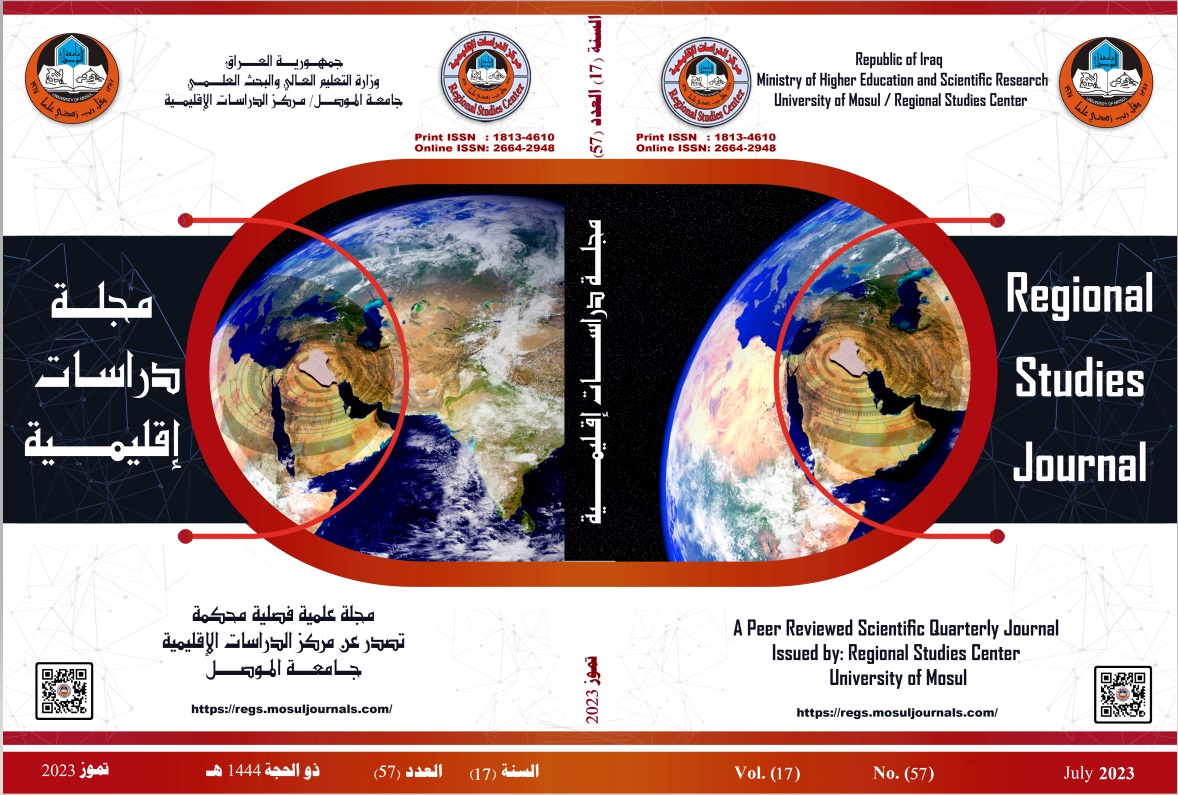Abstract
Abstract
Today we may complain about the demands of the state and protest against its increasing encroachments, but it is impossible for us to think of life without it. This is what Professor Joseph Strayer said in his lecture given in 1961 at Princeton University in the United States. Eight years later, he expanded on this concept and explored its depths in a book he wrote entitled: Les Origines Medievales De L Etat Modern, in which he contributed an important fact: that the absence of the state means the dominance of tribal, ethnic, sectarian, creedal or racial ties. Hence, the larger body is late, the completion of primitiveness is the only one, as you say, that dispenses with the state. When the modern world reaches it, they find themselves, although they are on the verge of forming a state, and so on, falling under the shadow of an already existing state (1). Since we do not prefer to escape from the state, we must know what the state is? When did it appear, what are its historical origins, what are its functions, on what principles and diversity, and what are the opinions of Western thinkers about its size?
Today we may complain about the demands of the state and protest against its increasing encroachments, but it is impossible for us to think of life without it. This is what Professor Joseph Strayer said in his lecture given in 1961 at Princeton University in the United States. Eight years later, he expanded on this concept and explored its depths in a book he wrote entitled: Les Origines Medievales De L Etat Modern, in which he contributed an important fact: that the absence of the state means the dominance of tribal, ethnic, sectarian, creedal or racial ties. Hence, the larger body is late, the completion of primitiveness is the only one, as you say, that dispenses with the state. When the modern world reaches it, they find themselves, although they are on the verge of forming a state, and so on, falling under the shadow of an already existing state (1). Since we do not prefer to escape from the state, we must know what the state is? When did it appear, what are its historical origins, what are its functions, on what principles and diversity, and what are the opinions of Western thinkers about its size?
Keywords
history of Wffffsssfesdedefestern thought
modern Western thought
State in Western thought
Abstract
قد نشكو اليوم من متطلبات الدولة، ونحتج ضد تعدياتها المتزايدة، ولكن يستحيل علينا التفكير في الحياة بدونها. هكذا يقول (الأستاذ جوزيف شترا ير جويف. ر.ستراير) في محاضرته التي ألقاها سنة 1061، في جامعة برينستون بالولايات المتحدة. وبعد ثمان سنوات عاد فتوسع في هذا المفهوم، وسبر غوره في كتاب ألفه بعنوان:
(الأصول الحديثة للوسطية الحديثة)) Les Origines Medievales De L Etat Modern وفيه ساهم حقيقة مهمة وهي أن غياب الدولة معناه طغيان الارتباطات العشائرية، أو الاثنية، أو المذهبية، أو العقيدة أو العرقية. ومن هنا فان القوام الاكبر متأخرا، اكتمال بدائية هي وحدها، كما تقول، التي الاستغناء عن الدولة وعندما أبلغها العالم الحديث، فانهم يجدون أنفسهم على الرغم من أنهم على وشك تشكيل في دولة، وما إلى الانضواء تحت ظل دولة قائمة فعلا(1). ولكوننا لا نفضل الإفلات من الدولة، فلا بد من معرفة معرفة ما الدولة؟ ومتى ظهرت، وما أصولها التاريخية ثم ما هي وظائفها وعلى أي مباديء ومتنوعة وما هي آراء المفكرين الغربيين حول كبرها.
(الأصول الحديثة للوسطية الحديثة)) Les Origines Medievales De L Etat Modern وفيه ساهم حقيقة مهمة وهي أن غياب الدولة معناه طغيان الارتباطات العشائرية، أو الاثنية، أو المذهبية، أو العقيدة أو العرقية. ومن هنا فان القوام الاكبر متأخرا، اكتمال بدائية هي وحدها، كما تقول، التي الاستغناء عن الدولة وعندما أبلغها العالم الحديث، فانهم يجدون أنفسهم على الرغم من أنهم على وشك تشكيل في دولة، وما إلى الانضواء تحت ظل دولة قائمة فعلا(1). ولكوننا لا نفضل الإفلات من الدولة، فلا بد من معرفة معرفة ما الدولة؟ ومتى ظهرت، وما أصولها التاريخية ثم ما هي وظائفها وعلى أي مباديء ومتنوعة وما هي آراء المفكرين الغربيين حول كبرها.
Keywords
الدولة في الفكر الغربي، الفكر الغربي الحديث، تاريخ الفكر الغربي
